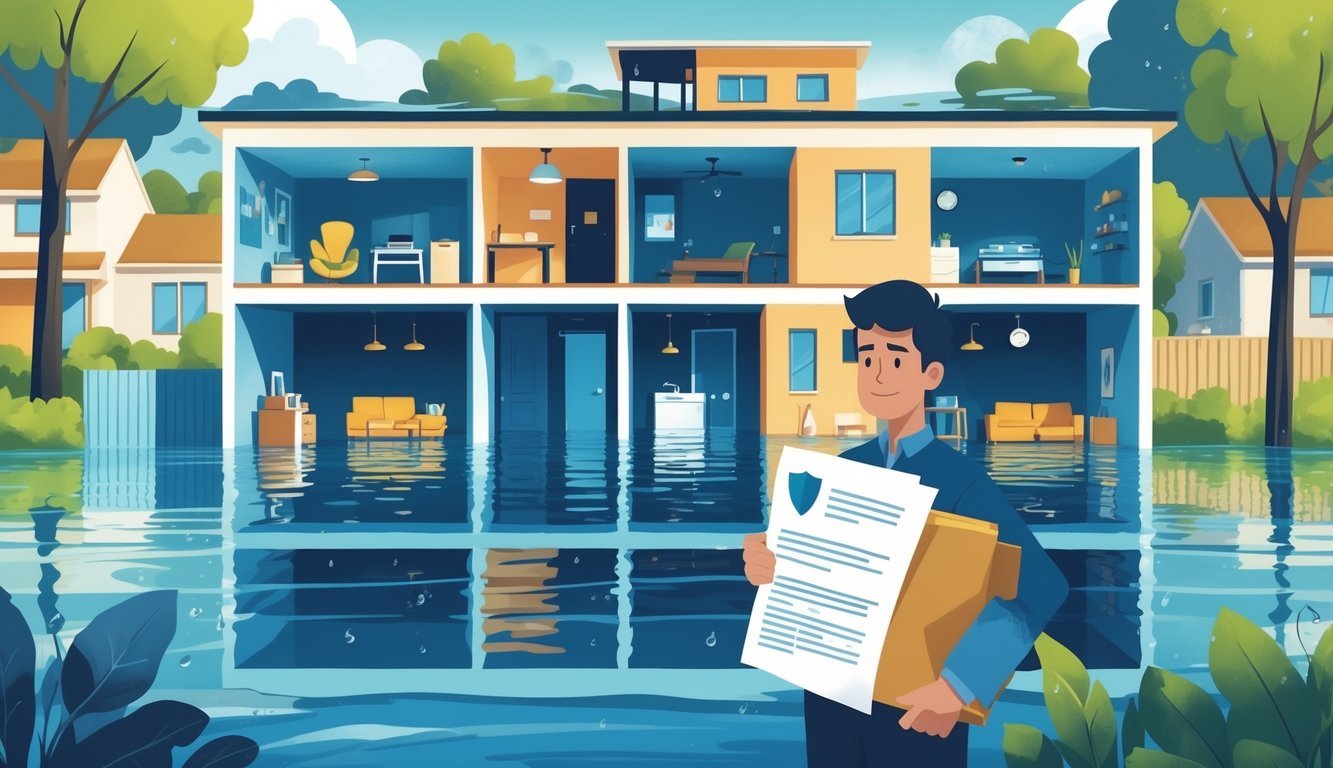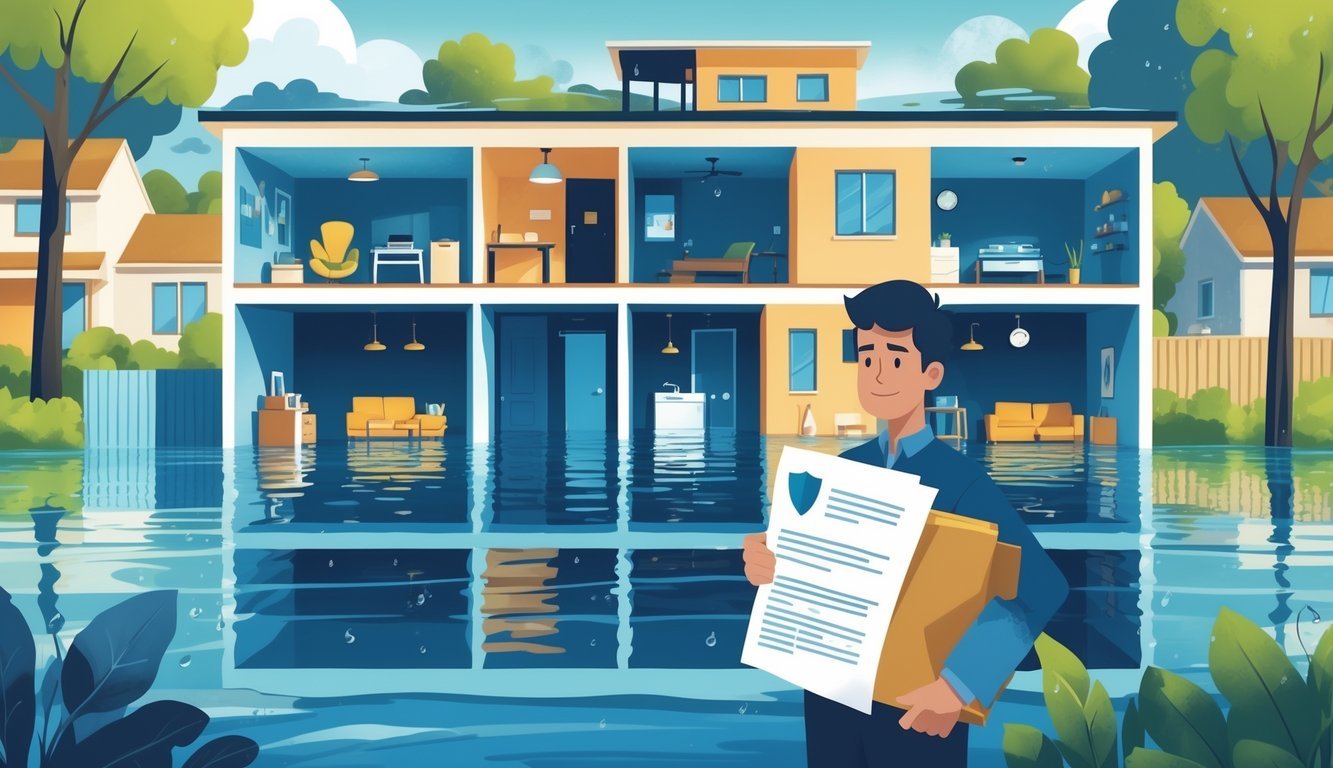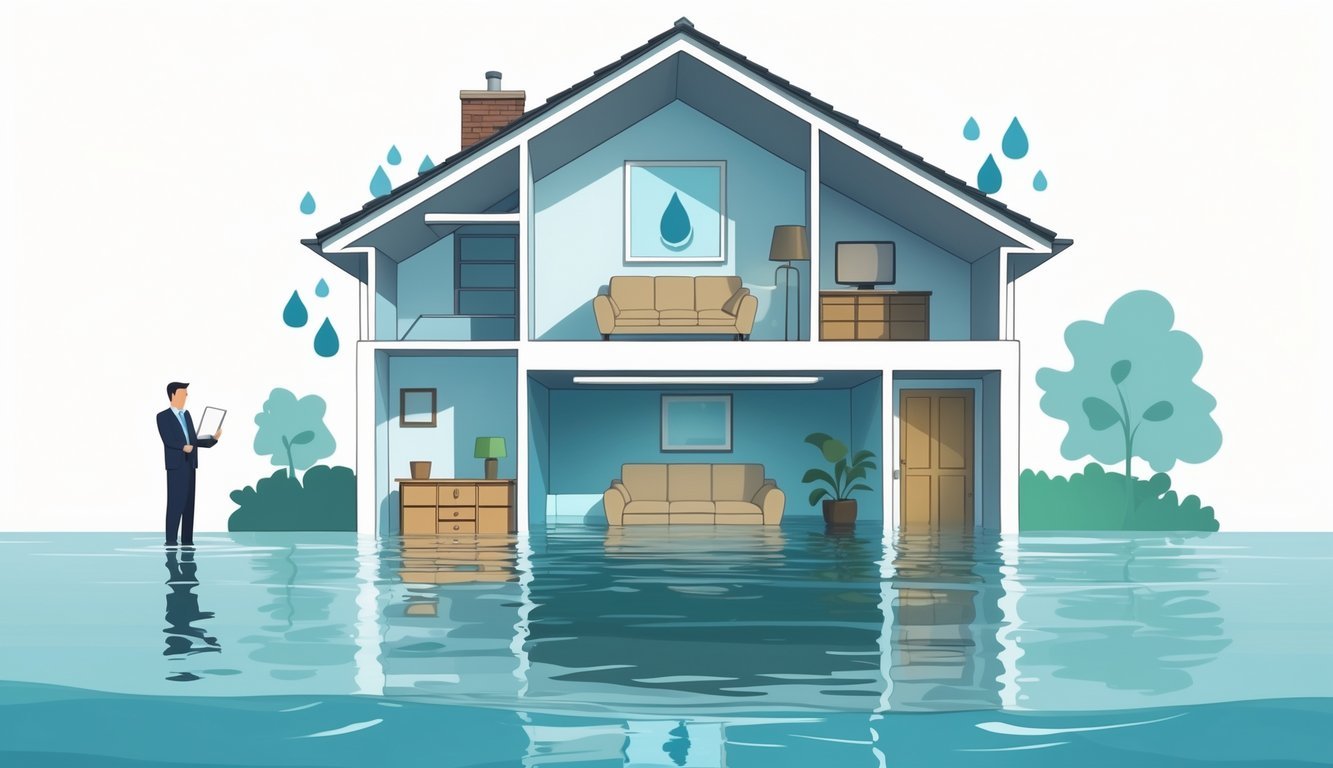PsychNewsDaily Publishers
100 Summit Drive
Burlington, MA, 01803
Telephone: (320) 349-2484
PsychNewsDaily Publishers
100 Summit Drive
Burlington, MA, 01803
Telephone: (320) 349-2484
Flood insurance is essential for basement apartments as standard homeowners insurance typically excludes flood damage, protecting residents from costly repairs after flooding incidents.

If you live in a basement apartment, you might wonder if flood insurance will actually protect your space. Flood insurance matters because standard homeowners insurance almost never covers flood damage, especially in basements.
Without flood insurance, you could end up paying for repairs yourself after a flood. That’s a tough spot to be in.

Basement apartments face a higher risk of flooding since they’re below ground level. Flood insurance covers certain parts of the building and some cleanup costs, giving you a safety net if water gets in.
If you know how flood insurance works for a basement, you can protect your home and stuff a lot better.
Understanding what’s covered and how to pick the right policy can save you time and money when flooding happens. Let’s dig into the basics so you’ll know what to expect and how to make the best choice for your basement apartment.

Flood insurance for basement apartments works differently than regular homeowners or renters insurance. It covers certain parts of your basement and some belongings, but there are limits you should know before you buy.
The National Flood Insurance Program (NFIP) covers a basement’s structure. This means things like walls, floors, staircases, and the foundation.
It also covers essential equipment, like sump pumps or heaters, that keep your basement running.
When it comes to personal property, flood insurance covers some belongings, but only those stored above ground level. Most standard policies won’t cover furniture or electronics sitting right on the basement floor.
You can pick coverage that pays the actual cash value for damaged items. Cleanup costs after a flood are often covered, like removing mud or drying things out.
Flood insurance is a separate policy from homeowners or renters insurance, and it comes with its own deductible.
Homeowners and renters insurance don’t cover flood damage. That’s why you need flood insurance if you live in a basement apartment.
Homeowners insurance protects your house and stuff from fire or theft, but only flood insurance covers losses from flooding. Renters can get a flood insurance policy to cover contents coverage for their things inside a basement apartment.
Flood policies usually limit personal property coverage and might not cover certain appliances or valuables. Flood insurance also doesn’t pay for additional living expenses if you have to move out during repairs.
Flood insurance comes with some important restrictions. It usually won’t cover damage to finished floors like carpet or drywall below ground level.
If you didn’t repair cracks in basement walls or fix previous water damage before the flood, the policy might not help you out. Certain personal property, like cash or valuable papers, isn’t covered either.
You’ll have to pay a deductible before insurance kicks in. If you live outside a FEMA flood zone or your basement is completely underground without proper flood openings, you can’t get flood insurance.
An insurance agent can walk you through these limits and make sure your policy fits what you need.

Basement apartments face higher flood risks just because they’re below ground. If you know your flood risk, how to file a claim, and a few ways to protect your stuff, you’ll handle damage much better.
Where you live really affects your flood risk. Apartments near rivers, lakes, or low-lying land get hit harder during heavy rain or flash floods.
Check your risk by visiting floodsmart.gov and typing in your address. The site tells you if you’re in a high-risk flood zone or floodplain.
These areas usually have stricter building rules to try to keep flood damage down. Basement units often have higher flood insurance rates because water can sneak in through walls, floors, or even pipes if things get wild.
Flood risk also jumps during hurricanes or big, sudden storms.
If your basement floods, call your insurance company as soon as you can. Flood insurance usually has a 30-day waiting period, so don’t wait until flood season to get covered.
When you file a claim, send in clear photos of the damage and a list of lost or ruined items. Include details about your personal property and appliances like sump pumps or water heaters.
You can get help from FEMA or talk to your insurer if you have questions. Ask what your policy covers, especially water backup coverage for sump pumps or sewer backup.
To keep flood damage down, don’t leave valuables on the basement floor. Use waterproof bins for important things or stash them on higher floors.
Install a sump pump with a battery backup so it keeps working if the power goes out. Test your sump pump every so often so it doesn’t fail when you need it.
Seal up cracks in basement walls and floors to help keep water out. If heavy rain or hurricanes are on the way, consider flood barriers or sandbags.
Talk to your landlord about floodproofing, or check if your renters insurance covers flood losses for a little extra peace of mind.
| Tip | Why It Helps |
|---|---|
| Use waterproof containers | Protects belongings from water damage |
| Maintain sump pump | Prevents water buildup and basement flooding |
| Seal cracks | Stops water from seeping into your space |

Flood insurance for basement apartments has its own rules and coverage limits. If you know what’s covered, how to get insurance, and who’s responsible, you’ll protect your home and belongings better.
Reach out to an insurance provider or visit the National Flood Insurance Program (NFIP) website to buy a flood policy. Be sure to mention your apartment is in a basement so they can set you up with the right coverage.
Yes, walkout basements usually count, but coverage for finished areas like walls, floors, and certain appliances might be different from above-ground rooms. Always check your policy details.
Flood insurance typically covers the structure—foundation walls and electrical systems if they’re hooked up to power. It may also cover cleanup costs and some personal property, depending on your policy.
Most renter’s insurance won’t cover flood damage. Check your policy or ask your insurer directly. Some companies, like USAA, might offer flood coverage as part of their renters policies.
In California, property owners and renters can buy flood insurance through the NFIP. Some private insurers offer flood insurance too, but options depend on your location and the state’s flood risk.
Landlords generally have to get their own flood insurance to cover the building itself. They handle repairs to the structure if flooding happens.
Tenants, on the other hand, need to buy their own insurance to protect their stuff and cover damage inside their unit.